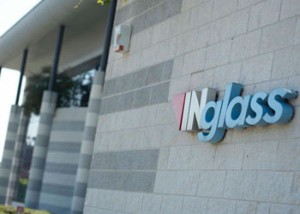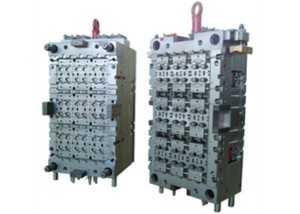 ERMO is a division of INglass, headquartered at San Polo di Piave, reality historically renowned as leader in the market of plastic injection moulds for car lights. Established in 1987 by Maurizio Bazzo, President in charge, over the years the company has confirmed its excellence in the sector on a world scale, proposing a product of undisputed quality and a support at high engineering level given by the thirty-year experience gained and by the continuous development of technologies like the Plastic Glazing for the implementation of large polycarbonate surfaces. After the takeover in 2014 of ERMO, leader French company in the production of high-precision multi-cavity moulds, in 2016 INglass Group has launched on the market the new business structure with, under the ERMO brand, the mould division that includes the French and Italian core businesses. The synergy of the two realities, sharing the constant investments in technological innovations for the common excellence target, allows offering qualified commercial and technical support close to customers’ headquarters and the willingness of realizing complete projects wherever the production is launched. The Italian company is a reference reality in the market of car lights for both mould makers and automotive industries, which turn to ERMO to solve the problems dictated by the growing complexity of lights, by the high aesthetical and technological standards imposed and by the short times required for the mould making.
ERMO is a division of INglass, headquartered at San Polo di Piave, reality historically renowned as leader in the market of plastic injection moulds for car lights. Established in 1987 by Maurizio Bazzo, President in charge, over the years the company has confirmed its excellence in the sector on a world scale, proposing a product of undisputed quality and a support at high engineering level given by the thirty-year experience gained and by the continuous development of technologies like the Plastic Glazing for the implementation of large polycarbonate surfaces. After the takeover in 2014 of ERMO, leader French company in the production of high-precision multi-cavity moulds, in 2016 INglass Group has launched on the market the new business structure with, under the ERMO brand, the mould division that includes the French and Italian core businesses. The synergy of the two realities, sharing the constant investments in technological innovations for the common excellence target, allows offering qualified commercial and technical support close to customers’ headquarters and the willingness of realizing complete projects wherever the production is launched. The Italian company is a reference reality in the market of car lights for both mould makers and automotive industries, which turn to ERMO to solve the problems dictated by the growing complexity of lights, by the high aesthetical and technological standards imposed and by the short times required for the mould making.  The company’s engineers and technicians support customers from the co-design of the workpiece to the try-out, granting a feasibility and quality control in compliance with the submitted requirements along the entire manufacturing cycle. The machining of a mould for car lights can take up to 3,000 operation hours, with tolerances and finishes of the surfaces defined precisely. Therefore, the machines used must always grant on one hand the reliability for the high performances requested, on the other hand a constant control of each phase and of each finish. The machining process of a mould starts with the roughing of steel blocks and with the execution of drills. The component is successively hardened, from 32 HRC with which roughing is executed up to 46-48 HRC to assure the mould resistance. Successively the component goes to the finishing department, where 5-axis milling machines provide for about 2 mm stock removal. The parts of the mould characterized by complex shapes or very sharp angles or edges– where a finishing on the machine would be too complex – are machined with the EDM process, implementing the copper or graphite electrode. For this reason, over the last few years ERMO has invested in the process automation, equipping machines with the automated tool change and in-house developing automation systems for the piece change; besides, in the meantime they have developed and refined the work-flow and technical machining parameters. The technical department develops the entire CAD/CAM part and, after the simulation, programmes are launched directly on the machine, then annulling the possible machining errors on machine board. All this enables a total operation on three shifts, allowing the company to reduce production costs and to shorten delivery terms.
The company’s engineers and technicians support customers from the co-design of the workpiece to the try-out, granting a feasibility and quality control in compliance with the submitted requirements along the entire manufacturing cycle. The machining of a mould for car lights can take up to 3,000 operation hours, with tolerances and finishes of the surfaces defined precisely. Therefore, the machines used must always grant on one hand the reliability for the high performances requested, on the other hand a constant control of each phase and of each finish. The machining process of a mould starts with the roughing of steel blocks and with the execution of drills. The component is successively hardened, from 32 HRC with which roughing is executed up to 46-48 HRC to assure the mould resistance. Successively the component goes to the finishing department, where 5-axis milling machines provide for about 2 mm stock removal. The parts of the mould characterized by complex shapes or very sharp angles or edges– where a finishing on the machine would be too complex – are machined with the EDM process, implementing the copper or graphite electrode. For this reason, over the last few years ERMO has invested in the process automation, equipping machines with the automated tool change and in-house developing automation systems for the piece change; besides, in the meantime they have developed and refined the work-flow and technical machining parameters. The technical department develops the entire CAD/CAM part and, after the simulation, programmes are launched directly on the machine, then annulling the possible machining errors on machine board. All this enables a total operation on three shifts, allowing the company to reduce production costs and to shorten delivery terms.
Mould&Die World magazine © 2024 All Rights Reserved


